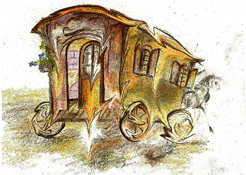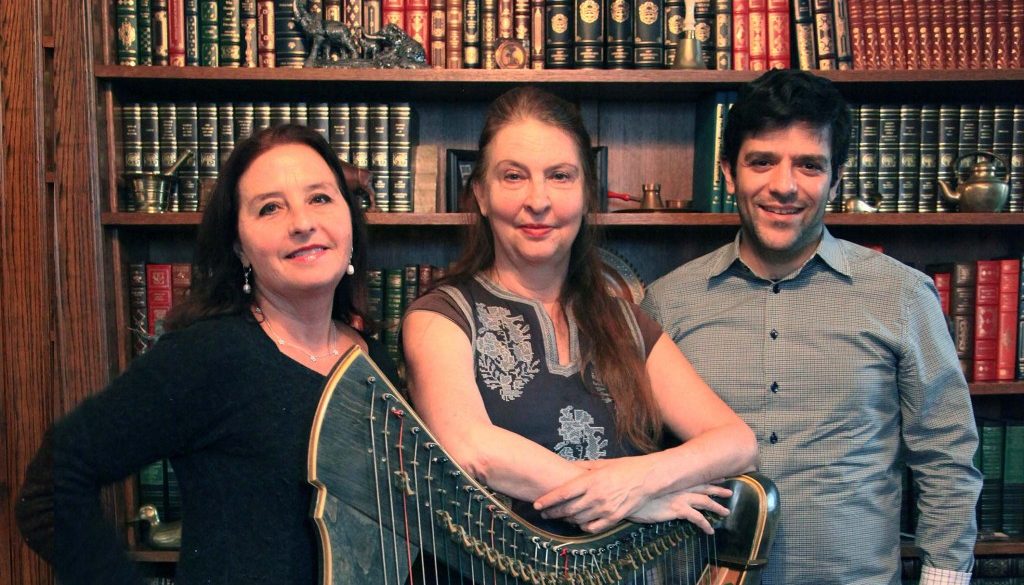Arpa Rembetika
Vendredi 29 avril 2016
Chansons Grecques, Songs of the Greek Underground.
Arpa Rembetika explores the exotic modes of the traditional “Greek Blues”
through the harp and three singers who all lived in Greece and are
passionate philhellenes. The Turkish-style singing of Beatrice Cale, the
Greek tenor of Aristofanis Soulikias, and the cascading harp riffs of Susan
Palmer, closer in sound to the ancient lyre than to the bouzouki – come
together to capture the beauty, sadness and defiance of these songs.
Douglas Newman articulates the complex 9 or 7-beat rythmns on the frame
drum and darboukha.
Le rebétiko (ρεμπέτικο) or le “Greek Blues” est une forme de musique
populaire grecque apparue dans les années 1920. Le développement des
rébétika aux ports du Pirée et Thesalonique fut la conséquence de la
rencontre, dans les années 1920, des réfugiés d’Asie mineure. Bientôt
apparaissent des chansons faisant l’apologie du mode de vie « rébet »,
basé sur l’honneur, un mélange de bonté de cœur et de malice qui fait tout
le personnage du « mangas”.
Rembetika lyrics speak of nostalgia for their lost orchards, of love,
poverty, crime, and the consolations of hashish and ouzo. Song modes
range from Greek folk scales to Turkish makam, and the rythmns are
usually an 18-beat cycle. Rembetika was transformed in the 1930s by the
advent of the bouzouki in the clubs of Piraeus, and by the 1950s it became
incorporated into Greek popular music, known as Laika.
Songs and dances of the Greek Underground
Arpa Rembetika explores the exotic modes of the traditional “Greek Blues” through the harp and three singers who all lived in Greece and are passionate philhellenes. The Turkish-style singing of Beatrice Cale, the Greek tenor of Aristofanis Soulikias, and the cascading harp riffs of Susan Palmer, closer in sound to the ancient lyre than to the bouzouki – come together to capture the beauty, sadness and defiance of these songs. Douglas Newman articulates the complex 9 or 7-beat rythmns on the frame drum and darboukha.
Rembetika (“the Greek Blues”) is the music of the Greeks, prosperous merchants and farmers exiled from Turkey, who became the criminal class of the seaports of Thessalonika and Piraeus. The Greek communities under the Ottoman Empire thrived for centuries, but experienced genocide and deportation during the war in 1923 and the Great Fire of Smyrna. Rembetika lyrics speak of nostalgia for their lost orchards, of love, poverty, crime, and the consolations of hashish and ouzo. Song modes range from Greek folk scales to Turkish makam, and the rythmns are usually an 18-beat cycle. Rembetika was transformed in the 1930s by the advent of the bouzouki in the clubs of Piraeus, and by the 1950s it became incorporated into Greek popular music, known as Laika.

